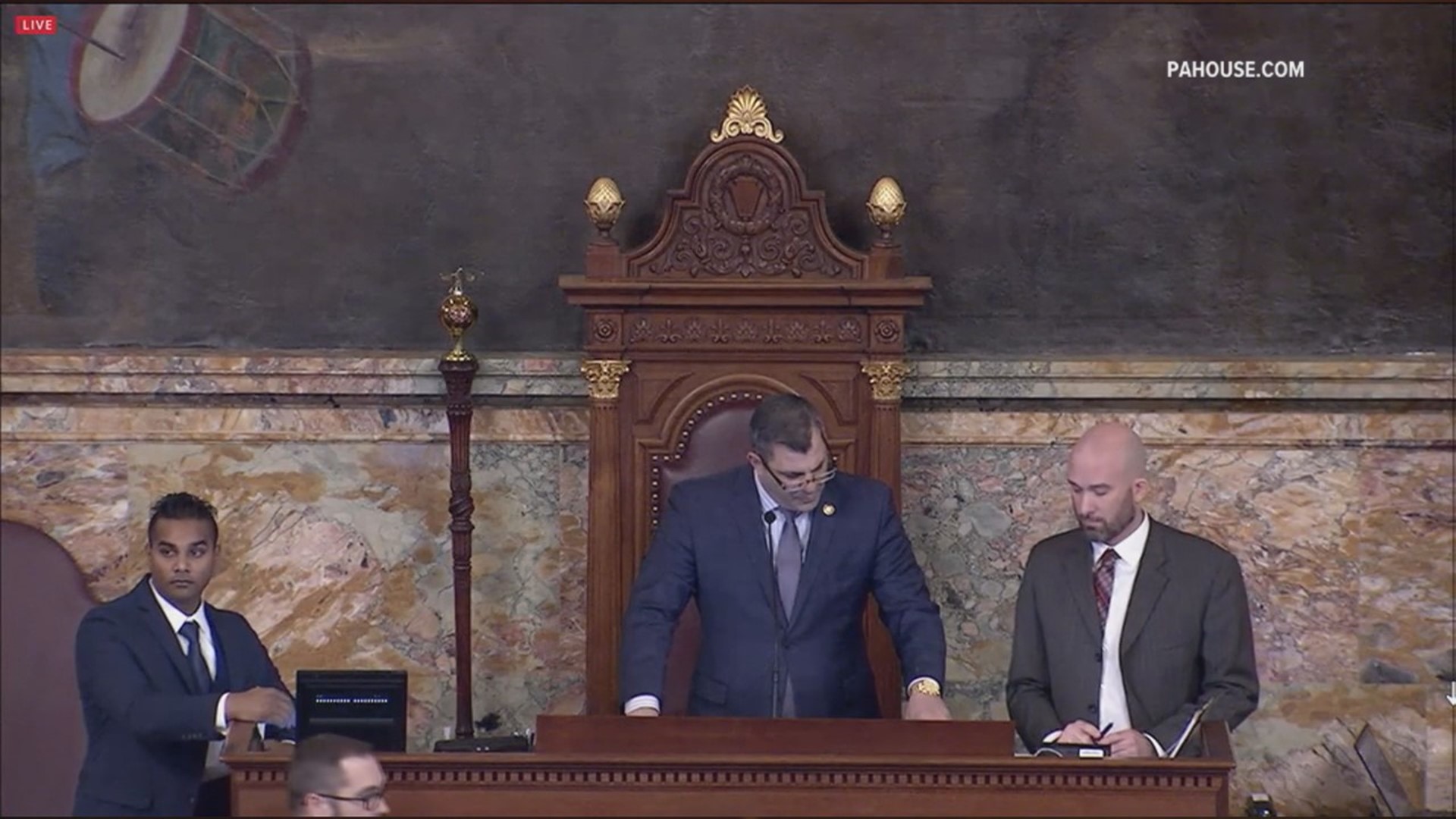HARRISBURG, Pa. — Both chambers of the Pennsylvania legislature met at noon Monday, Jan. 9 for a special session to vote on a measure to aid adult survivors of childhood sexual abuse.
Gov. Tom Wolf called the special session, one of his last acts in his final weeks in office. The topic of the session is a constitutional amendment that would allow adult victims of childhood sexual abuse to sue the perpetrators.
The measure has been in the works for years, but Gov. Wolf’s call for a special session comes amid an unprecedented week in Pennsylvania politics.
Last Tuesday, Republicans elected a Democratic Speaker of the House, Mark Rozzi (D-Berks), who pledged to govern as an independent.
Rozzi has been an outspoken advocate for survivors of childhood sexual abuse, as he himself suffered sexual childhood sexual abuse at the hands of a Catholic priest as a teenager.
Changes to the statute of limitations for these crimes were proposed in 2018 in a report by a statewide grand jury that investigated the cover-up of decades of child sexual abuse by members of the Catholic Church.
As a state representative, Rozzi for years led an effort to open a two-year retroactive window for adult survivors to sue their abusers and institutions that protected them, even if the statute of limitations has passed.
Survivors and advocates called to pass such a measure for at least a decade but fought resistance from Republican Senate leadership of the time, as well as from the Catholic Church and the insurance industry.
To withstand legal challenges, advocates decided the measure must be passed as a constitutional amendment.
The process to pass a constitutional amendment takes several years. Under state law, changes to the state constitution require that a proposal be approved by the legislature in two consecutive sessions (sessions last two years each). At that point, the proposed change appears on the ballot for voters to decide.
The measure had passed the required two times and was set to appear as a referendum on the May 2021 ballot. However, the Department of State failed to properly advertise the amendment in newspapers across the state, leading to the resignation of then-Secretary of State Kathy Boockvar.
An ensuing effort to push the amendment through an emergency process failed.
Due to the error, the process had to be restarted.
The House and Senate both passed the measure again in the spring of 2021, so it now needs one more vote before going to voters as a referendum.
In order to get on the May 21, 2023 primary ballot, the bill must be passed by Jan. 27, according to officials from the Department of State.
An official said they need time before the election to publish the required notices in newspapers across the state, work with the office of the Attorney General to write a plain language statement, and translate advertisements in both Spanish and Chinese, as required by the Voting Rights Act.
Gov. Wolf cited the upcoming deadline as the impetus behind scheduling the special session from Jan. 9 to 27, in which the legislature can only pass bills related to that topic.
Speaker Rozzi has also made the bill a top priority. He said in a statement,
“As long as I am the Speaker of the House of Representatives, the House will consider no other legislation until the General Assembly passes the language of Representative Gregory’s constitutional amendment.”
With bipartisan support, it would seem that passing the bill would be a slam dunk. But passing it as a single measure, rather than part of a larger bill, would mean Republicans couldn’t add on any other items on their wish list, such as expanding voter ID requirements.
Republican leadership in both chambers have committed to passing the measure sometime this session.
House GOP Leader and former Speaker of the House Bryan Cutler (R-Lancaster) wrote in a statement,
“…it is not in the best interest of the Commonwealth to do this work in special session, where we are required to only work on a single issue… We can do this work in regular session, while also addressing other urgent needs the people of Pennsylvania expect us to address in a timely manner.”
After opening the special session, the Republican-majority Senate immediately went into recess and later opened back in normal session to conduct other work.
In the House, meanwhile, Rep. Cutler posed several procedural questions before the legislators went into recess.

